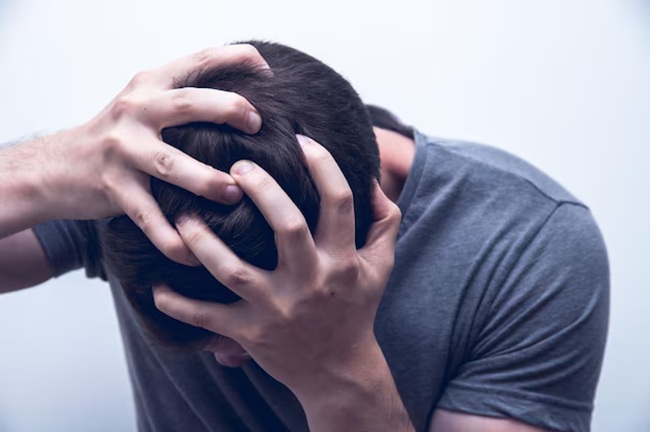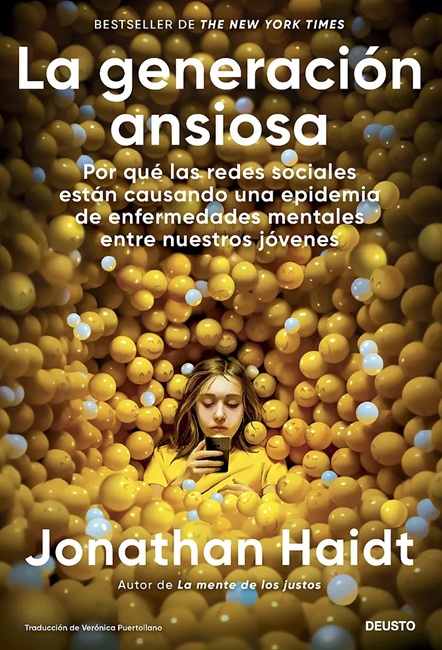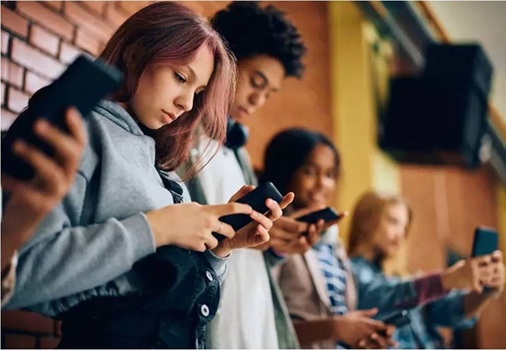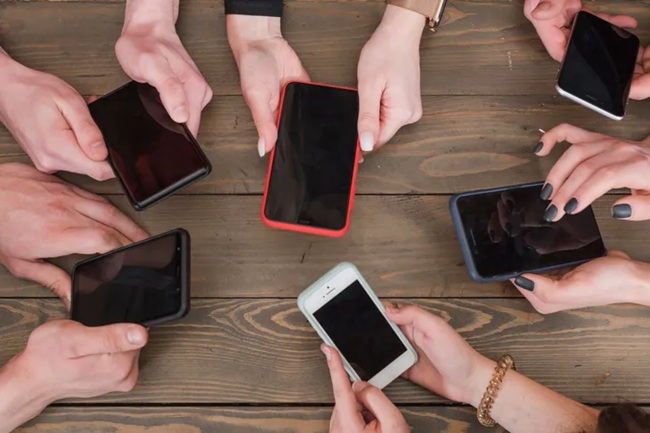The Screen Pandemic
especiales

The World Health Organization (WHO) has not recognized it as a health disorder and only refers to it as "problematic internet use." However, addiction to social media is becoming increasingly dangerous worldwide.
This addiction can trigger responses similar to certain drug addictions.
so far much effort has been made on its impact regarding mental health, but recent research from Durham University in Britain has found that constant social media use also produces physical responses.

These responses could explain why social media is so harmful. Why is it so difficult to get away from social media and go through some kind of "abstinence?"
The researchers behind the study found that while participants were using Instagram, their heart rate decreased and sweating increased, a pattern that indicates a state of high concentration and emotional arousal, similar to that of engaging in any meaningful or stimulating activity.
They discovered that when they stopped browsing the social media platform, sweating increased even more and their heart rate accelerated, while many reported feeling anxiety and stress, a fact that has also been confirmed by other studies indicating how the indiscriminate use of social media is turning anxiety into an epidemic among young people.

Along the same lines, New York University professor Dr. Jonathan Haidt, in his book The Anxious Generation: How Hyperconnected Children Are Driving an Epidemic of Mental Disorders, points out that social media encourages, especially among young people and adolescents, constant comparisons with supposedly perfect images of life, generating harmful feelings and reactions.
“My main thesis is that these two tendencies—overprotection in the real world and lack of protection in the virtual world—are the main reasons why children born after 1995 became the anxious generation,” the expert asserts.
They're not like alcohol or cigarettes, but…
The research from Durham University that motivates these lines found that the reactions described above were experienced by all participants, which led the authors to wonder if these physiological responses, similar to those generated by classic withdrawal symptoms, could lead to the question of whether social media could also generate a form of addiction.
In this regard, they suggest that, unlike previously known addictions, the motivation behind excessive social media use lies in the human need for connection, belonging, and social approval.

Powerful reward mechanisms are embedded in the design of these networks and lure their users in.
It's no coincidence that the term "brain rot" was chosen as the word of the year 2024 by Oxford University Press, the most renowned publishing house in the United Kingdom, alluding precisely to the effects of constant cyberconnection.
In this regard, Dr. Anna Lembke, psychiatrist and author of The Dopamine Generation, is more conclusive, explaining that people can become addicted to digital media just as they are to drugs.

This is so, he claims, because with every "like," comment, or enjoyable video, a surge of dopamine is triggered, the brain substance that "makes us feel good."
And when the brain, seeking balance, tries to compensate for this excess by slowing down or decreasing the production and transmission of this so-called pleasure hormone, the internet user suffers a supposed dopamine deficiency, which they try to compensate for by staying online longer, creating a closed circle like an ouroboros.
Connected Cubans
Although connectivity in Cuba entails difficulties, research published last year by Infomed website of the Cuban Ministry of Public Health (MINSAP) also determined a certain level of risk of developing addictive disorders in the subjects studied.

In that study, "Risk of Social Media and Internet Use in Cuban Adolescents," nearly a fifth of the participants, especially males, were found to exhibit symptoms of addiction, while the survey also revealed that they were afraid of being without their mobile devices, experiencing stress and anxiety.
Antonio Hernández Domínguez, a Cuban computer science engineer and assistant professor at the University of Computer Sciences, adds from another perspective that, especially young people, share content online as a means of self-realization and identity building.
He draws attention to the potential risks derived from these behaviors, which can jeopardize privacy, physical security, and even reputation.
Abstain?
Even though some schools and other institutions have put a stop to the use of mobile phones and other screens, encouraging or imposing a complete disconnection from social media is neither logical nor viable.
But some experts do insist on placing dissuasive labels on social media, just as they do with cigarette packs. It could be something like "Long hours connected to this network can harm your mental health," or something similar.

It's possible that these labels generate some benefits, but they won't win the battle on their own.
Explaining, arguing, demonstrating, educating... these are verbs that must also accompany these practices, in which parental monitoring and intervention are key, balancing benefits and risks on the scales of common sense. UNICEF assures this, and many Cuban families experience it daily.
Translated by Amilkal Labañino / CubaSí Translation Staff














Add new comment